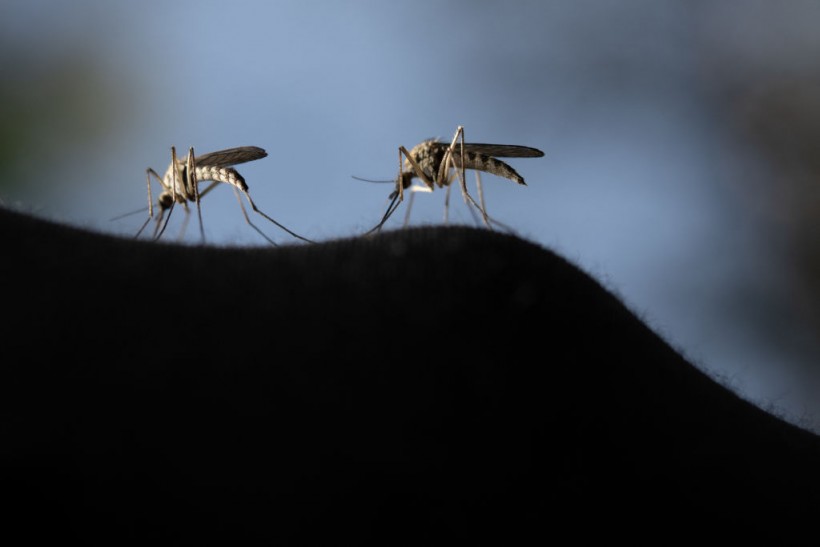Mosquito-transmitted viruses, such as Zika, West Nile, Yellow Fever and dengue viruses, are a major threat to global public health.
These viruses can cause severe diseases, such as microcephaly, encephalitis, hemorrhagic fever, and shock syndrome. However, there are currently no specific antiviral drugs or vaccines available for most of these viruses.
Therefore, there is an urgent need to find new ways to prevent and treat these infections.
One promising strategy is to target the host factors that are essential for viral replication and infection.
By blocking these host factors, it may be possible to inhibit multiple mosquito-transmitted viruses at once.
A recent study from the laboratory of Michaela Gack, Ph.D., Scientific Director of Cleveland Clinic's Florida Research & Innovation Center, has discovered a novel host factor that is critical for the replication of several flaviviruses, a class of viruses that includes Zika, West Nile, Yellow Fever and dengue viruses.
The study also suggested that this host factor could be a potential therapeutic target for developing new antiviral drugs.
How did the researchers identify the novel host factor?
 (Photo : OLIVIER MORIN/AFP via Getty Images)
(Photo : OLIVIER MORIN/AFP via Getty Images)

The researchers used a combination of molecular biology, biochemistry, and virology techniques to identify and characterize the novel host factor.
They focused on a human enzyme called KAT5γ (an acetyltransferase), which is known to modify proteins by adding acetyl groups to them.
Acetylation is a process that can regulate the function, stability, and interactions of proteins.
The researchers found that KAT5γ is recruited by flaviviruses to their replication complexes, which are specialized structures where viral RNA is copied.
According to the study, KAT5γ acetylates a viral protein called NS3, which is a key component of the replication complex and is essential for the activity and stability of NS3.
The researchers then used genetic and pharmacological approaches to inhibit KAT5γ in human cells infected with flaviviruses.
They found that blocking KAT5γ significantly reduced the replication and infection of Zika, West Nile, Yellow Fever and dengue viruses.
Moreover, they found that inhibiting KAT5γ did not affect the replication of other unrelated viruses, such as influenza A virus or herpes simplex virus 1.
These results indicated that KAT5γ is a novel host factor that is specifically required for the replication of flaviviruses.
Also Read: Mosquito Swarm Strikes Farmer's Home After Heavy Rainfall Events in Australia [Video]
What are the implications of the study for the development of new treatments?
The study has several implications for the development of new treatments for mosquito-transmitted viral diseases.
First, it reveals a new mechanism by which flaviviruses hijack host cells to promote their own replication and infection.
This increases our understanding of how these viruses interact with their hosts and how they evade host defenses.
It also dentifies KAT5γ as a potential therapeutic target for developing new antiviral drugs against flaviviruses.
Since KAT5γ is a human enzyme, it is less likely to mutate or develop resistance than viral proteins. Moreover, since KAT5γ is involved in the replication of multiple flaviviruses, targeting it could have broad-spectrum antiviral effects.
Lastly, it provides a proof-of-concept that inhibiting KAT5γ can reduce flavivirus replication and infection in human cells, suggesting that KAT5γ inhibitors could have therapeutic potential in vivo.
However, further studies are needed to test the safety and efficacy of KAT5γ inhibitors in animal models and clinical trials.
Related article: Techniques on Dealing With Wildfires May Help Mosquito Problem
© 2024 NatureWorldNews.com All rights reserved. Do not reproduce without permission.

![Tsunami Hazard Zones: New US Map Shows Places at Risk of Flooding and Tsunamis Amid Rising Sea Levels [NOAA]](https://1471793142.rsc.cdn77.org/data/thumbs/full/70325/280/157/50/40/tsunami-hazard-zones-new-us-map-shows-places-at-risk-of-flooding-and-tsunamis-amid-rising-sea-levels-noaa.jpg)



